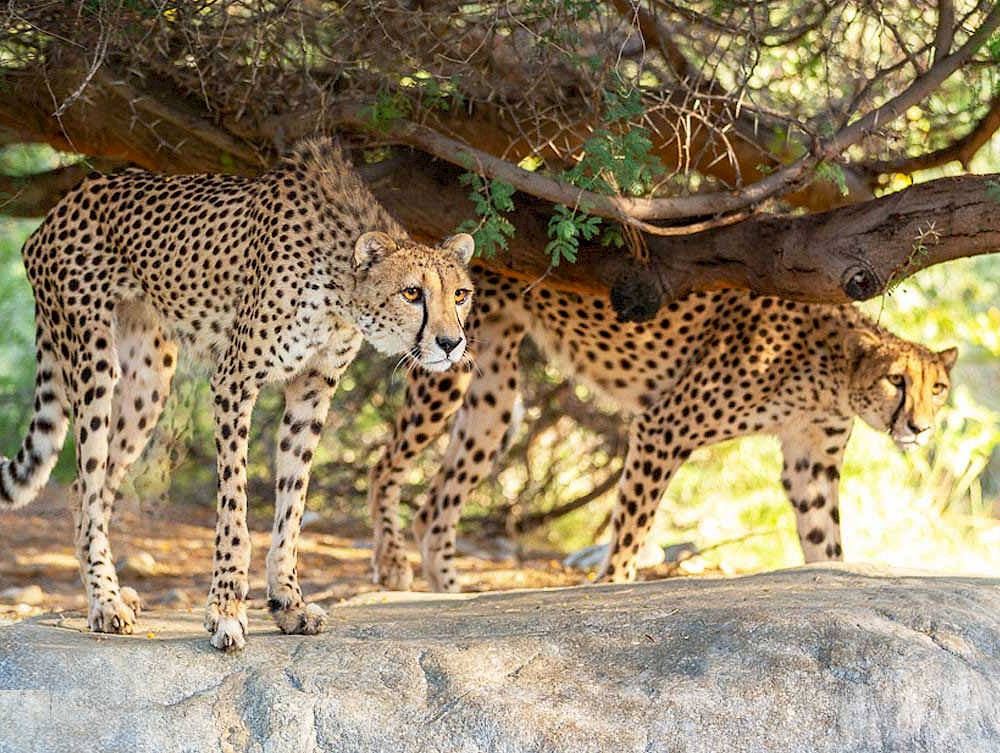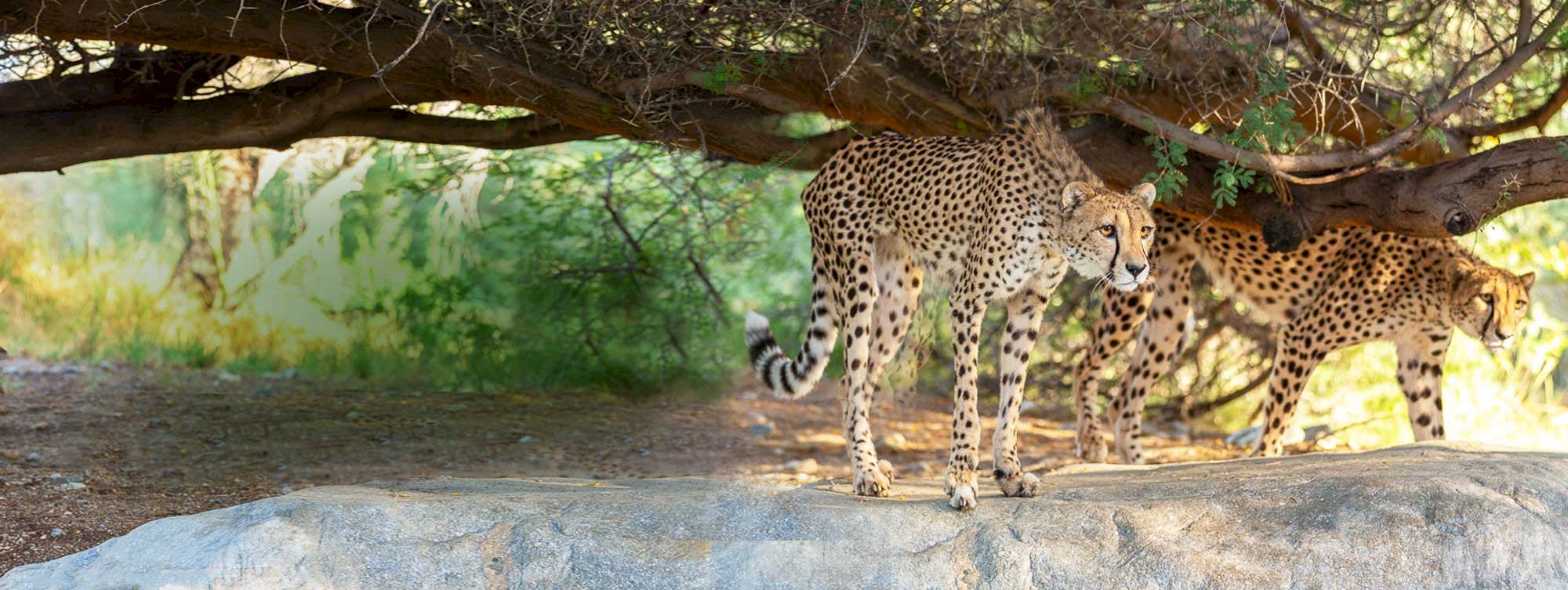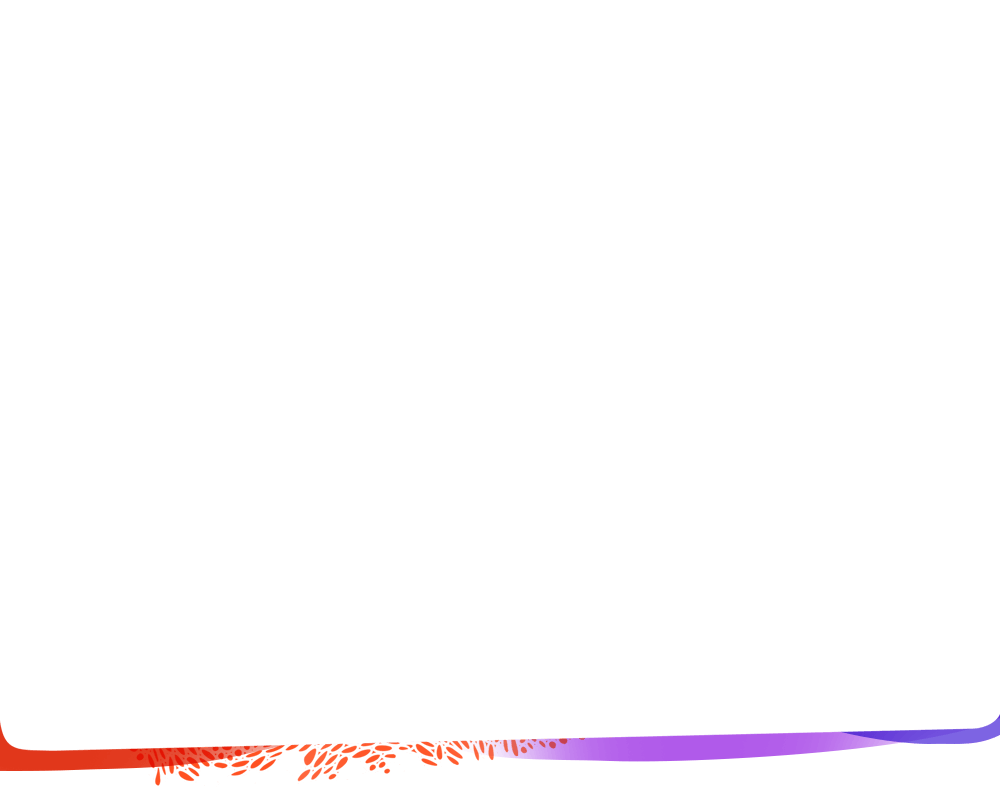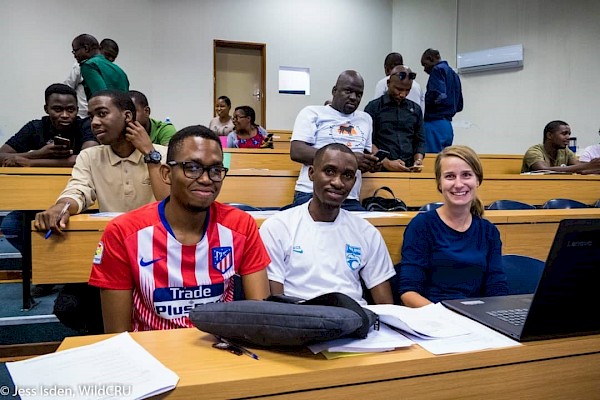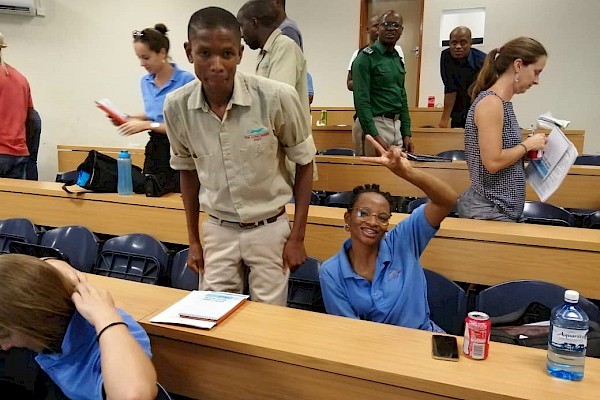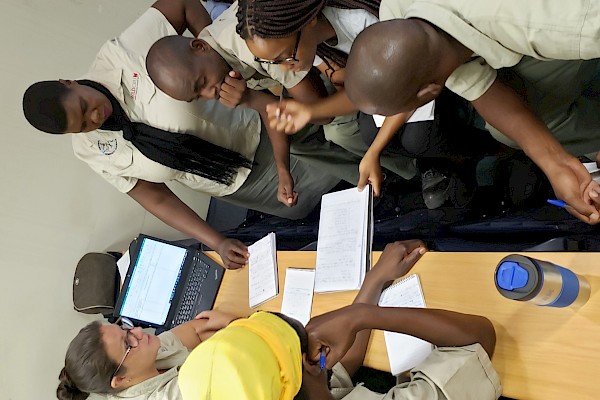A Great Success, Despite Some Small Challenges
Dr. James A. Danoff-Burg November 3, 2019Dumela e le amogetswe! Or, hello and welcome all, in Setswana!
Last Friday, we finished up our first weeklong workshop in Maun, Botswana as a great success, with some small caveats. These workshops help teach conservationists how to find out information from their local communities to improve their conservation interventions. Our approach focuses mostly on teaching conservationists how to conduct structured surveys so as to make it possible for them to quickly gather data and learn how to best work with local communities. Our larger goal is to enable conservation organizations to involve local communities as central parties to conservation efforts.
This workshop was in northern Botswana, near the world-famous Okavango Delta and Chobe National Park, had 45 people in attendance, the largest workshop I have ever led! The size posed a real challenge in addressing the needs of every person present. The participants gathered into seven teams, each trying to best address a unique specific human-wildlife conflict. Working with the teams made things a bit easier to clarify each of the subjects for everyone, but a single person cannot address all the needs of 45 people for an entire week. I really need some additional trained collaborators to help teach these workshops!
A second challenge, to which I eventually acceded, was interactive group discussions. Education in Botswana is typically more of a rote memorization style. Unfortunately for me, I don’t tend to teach that way! My approach is more interactive and Socratic, with many questions and (ideally) answers from the group, while I am presenting new information. That did not work here, falling flat nearly every time. After two days, I gave that up and just prattled on briefly until the next group work time. Fortunately, the workshop is designed to have short presentations that are usually 5-10 minutes long and then copious group work opportunities. The Batswana (people from Botswana) really excelled at the group work, thank goodness!
To underscore our reach that is typical with these workshops, there were 10 conservation organizations there. This included our key conservation partner Cheetah Conservation Botswana (CCB), as well as several other impressive international NGOs (Wild CRU, Elephants for Africa, Leopard Ecology and Conservation), some Community Trusts working in support of their people (Okavango Kopano Mokoro Community Trust and Sankoyo Trust, the University of Botswana (Okavango Research Institute), and the Ministry of the Environment (Department of Wildlife and National Parks, Botswana Wildlife Training Institute, and Karunya Consulting).
The CCB was our local coordinating partner, recruiting all of the participants, and making all the other arrangements for the workshop. Not only was the food we offered during the workshop a huge success (not the least of which for me personally is that the master cook made me unique vegetarian – vegan even – dishes every day!), but the auditorium was comfortable, and most importantly when it was around 100˚F every day, well air-conditioned! I am extremely grateful to Leanne and CCB for the great recruitment success here, but also the many kindnesses that their entire team extended to me personally on a daily basis.
In total, we had 18 people from the Ministry. As we all know, Ministries (or Departments) of the Environment can determine the fate of conservation in the country. To this end, The Living Desert has begun to explore the possibility of longer-term relationships with this important entity. It is a relationship that the Ministry has actively sought since the workshop ended, and one that we are strongly considering!
Since this was a workshop designed to build information gathering and evaluative skills, we of course did an evaluation of the workshop itself. The results were more positive than I could have hoped. Out of five, the participants gave at least an average of 4.94 in their evaluation of my personal performance, but more importantly the likelihood that they will continue conducting this type of conservation. That which was ranked the lowest – all of which still received average scores greater than 4.47 – was the duration of the workshop and the amount of material covered. Typically, workshops get down-weighted because people want the workshop to be shorter or cover less material. Surprisingly, every person who explained why they slightly down-weighted these items did so because they wanted the workshop to be around twice as long – two weeks! – and cover more aspects of data analysis. This is a good “problem” to have, I feel.
The second workshop will start next Friday near Victoria Falls in western Zimbabwe. Participants have been recruited, and will be hosted by our conservation partner Painted Dog Research Trust. At the time of this writing, we have over 30 people who have committed to attend, coming from four or five countries! As such, this next workshop will have the greatest number of countries represented of all the week-long social science training workshops that we have yet led, and likely equal in size.
Community-based conservation engagement training at The Living Desert is a growth industry. I am determined to ensure that our organization continues to be at the leading edge of this innovative approach to conservation. Think about whether you have skills that could help make this happen!
Hope you are well.
Yours in Conservation
Dr. James






